Farm Boy 牧場の少年 from Final Fantasy VII ファイナルファンタジーVII with sheet music
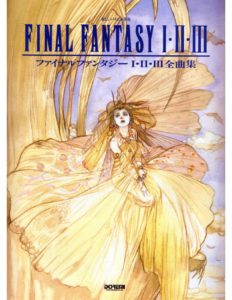
Sheet Music download here.
Music of the Final Fantasy VII series
Final Fantasy VII is a role-playing video game developed by Square (now Square Enix) and published by Sony Computer Entertainment as the seventh installment in the Final Fantasy series. Released in 1997, the game sparked the release of a collection of media centered on the game entitled the Compilation of Final Fantasy VII.
The music of the Final Fantasy VII series includes not only the soundtrack to the original game and its associated albums, but also the soundtracks and music albums released for the other titles in the collection.
The first album produced was Final Fantasy VII Original Soundtrack, a compilation of all the music in the game. It was released as a soundtrack album on four CDs by DigiCube in 1997. A selection of tracks from the album was released in the single-disc Reunion Tracks by DigiCube the same year. Piano Collections Final Fantasy VII, an album featuring piano arrangements of pieces from the soundtrack, was released in 2003 by DigiCube, and Square Enix began reprinting all three albums in 2004. To date, these are the only released albums based on the original game’s soundtrack, and were solely composed by regular series composer Nobuo Uematsu; his role for the majority of subsequent albums has been filled by Masashi Hamauzu and Takeharu Ishimoto.
The Compilation of Final Fantasy VII began eight years after the release of Final Fantasy VII with the release of the animated film sequel Advent Children in 2005. The soundtracks for each of the titles in the collection are included in an album, starting with the album release of the soundtrack to Advent Children that year. The following year, Nippon Crown released a soundtrack album to correspond with the video game Dirge of Cerberus, while Square Enix launched a download-only collection of music from the multiplayer mode of the game, which was only released in Japan. After the launch of the game Crisis Core in 2007, Warner Music Japan produced the title’s soundtrack. The latest album in the collection, Before Crisis: Final Fantasy VII & Last Order: Final Fantasy VII Original Soundtrack, was released by Square Enix the same year as a combined soundtrack album for the game Before Crisis and the animated movie Last Order.
The original music received highly positive reviews from critics, who found many of the tunes to be memorable and noted the emotional intensity of several of the tracks. The reception for the other albums has been mixed, with reactions ranging from enthusiastic praise to disappointment. Several pieces from the soundtrack, particularly “One-Winged Angel” and “Aeris’ Theme”, remain popular and have been performed numerous times in orchestral concert series such as Dear Friends: Music from Final Fantasy and Tour de Japon: Music from Final Fantasy. Music from the Original Soundtrack has been included in arranged albums and compilations by Square as well as outside groups.
Browse in the Library:
| Artist or Composer / Score name | Cover | List of Contents |
|---|---|---|
| Autum Song (October) – Tchaikovsky The Seasons (Musescore File).mscz | ||
| Autumn In New York (Guitar Arr. With Tab) | Autumn In New York (Guitar Arr. With Tab) | |
| Autumn In New York (Guitar Arr.) (Musescore File).mscz | ||
| Autumn Leaves Joseph Kosma Jazz Standard Piano Solo arr |
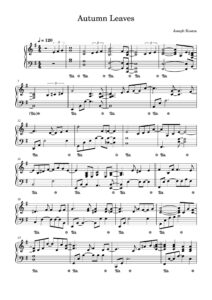 |
|
| Autumn Leaves Joseph Kosma Jazz Standard Piano Solo arr.mscz | ||
| Autumn Leaves Piano Bar Arr. Johnny Mercer Joseph Kosma Jacques André Marie Prévert | Autumn Leaves Piano Bar Arr. Johnny Mercer Joseph Kosma Jacques André Marie Prévert | |
| Autumn Leaves – Jazz Play Along LEAD SHEET MUSIC |
 |
Audio MP3 included in Aebersold’s Vol. 44 (Autumn Leaves) |
| Autumn Leaves – Piano Bar Arr. Johnny Mercer Joseph Kosma Jacques André Marie Prévert (Musescore File).mscz | ||
| Autumn leaves (Eva Cassidy) | ||
| Autumn Leaves As Played By Bill Evans (Musescore File).mscz | ||
| Autumn Leaves Cannonball Adderley And Miles Davis Sax Alto |
 |
|
| Autumn Leaves Music by Joseph Kosma |
 |
|
| Autumn Leaves Piano Solo – as played by Hank Jones.mscz | ||
| Autunm Leaves (Musescore File).mscz | ||
| Avatar – Leona Lewis – I See You |
|
Avatar I see you |
| Avatar sheet music Book James Horner |
|
Avatar |
| Ave Maria (Joyeux Noël OST) Philippe Rombi | ||
| Avenged Sevenfold Nightmare Guitar TAB |
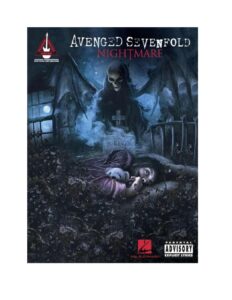 |
Avenged Sevenfold Nightmare Guitar TAB |
| Avenue Q The Musical Songbook |
 |
Avenue Q The Musical Songbook |
| Avicii – Wake Me Up Sheet Music Piano Vocal Guitar chords |
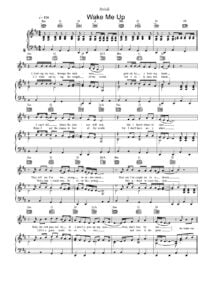 |
|
| Avishai Cohen Songbook Vol I |
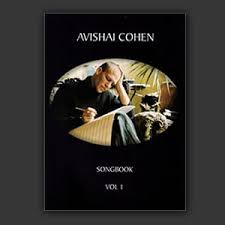 |
Avishai Cohen Songbook Vol I  |
| Avril Lavigne – Complicated | ||
| Avril Lavigne – Freak Out | ||
| Avril Lavigne – Im With You | ||
| Avril Lavigne – Innocence | ||
| Avril Lavigne – My Happy Ending | ||
| Avril Lavigne – When Youre Gone | ||
| Avril Lavigne – Why | ||
| Avril Lavigne the Best Damn Thing Songbook |
 |
Avril Lavigne the Best Damn Thing Songbook |
| Avril Lavigne Under My Skin |
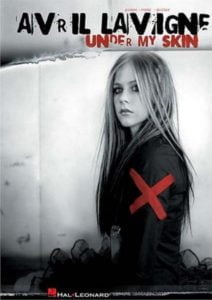 |
Avril Lavigne Under My Skin |
| Awaken (Jane Eyre OST 2011) Dario Marianelli | ||
| Awakenings Dexter’s Tune by Randy Newman |
 |
|
| Away In A Manger – Guitar TABlature |
 |
|
| Axel F from Beverly Hills Cop b Harold Faltermeyer Piano Vocal Guitar Chords sheet music |
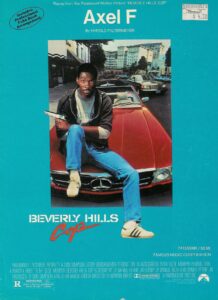 |
|
| Axel Jorgensen ROMANCE for Trombone and Piano Op. 21 |
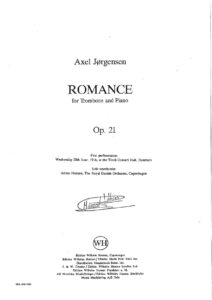 |
|
| Aya Hirano – God Knows Suzumiya Haruhi no Yuutsu OST Piano Solo |
 |
|
| Ayumi Hamasaki – Voyage | Ayumi Hamasaki – Voyage | |
| Ayumi Hamasaki All In | Ayumi Hamasaki All In | |
| Aziza Mustafa Zadeh Always Sheet Music |
 |
|
| Aziza Mustafa Zadeh Holiday Blessings |
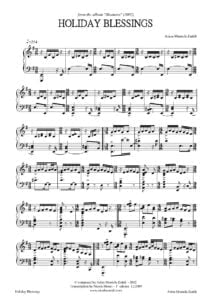 |
|
| Aziza Mustafa Zadeh Strange Mood |
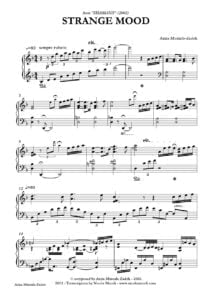 |
|
| Aziza Mustafa Zadeh – Dreaming Sheherezadeh |
 |
|
| Aziza Mustafa Zadeh – Melancholic Princess |
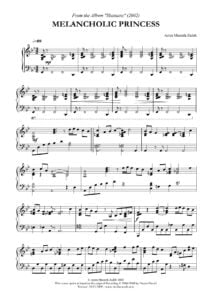 |
|
| Aziza Mustafa Zadeh – Barabashka |
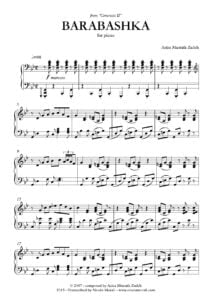 |
|
| Aziza Mustafa Zadeh Two Candles |
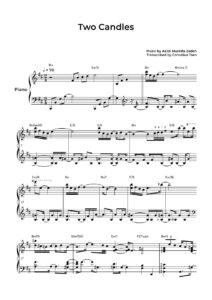 |
|
| B Witched – Cest La Vie | ||
| B Witched – Rollercoaster | ||
| B. B. King Live At The Regal Guitar TAB |
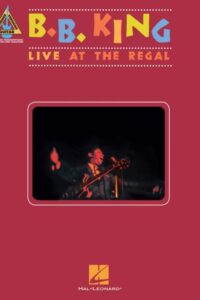 |
B. B. King Live At The Regal Guitar TAB |
| B.B. King Anthology Guitar TAB |
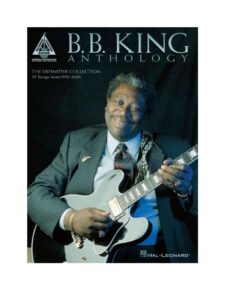 |
B.B. King Anthology Guitar TAB |
| B.B. King Greatest Hits |
 |
B.B. King Greatest Hits |
| B.B. King Guitar Play Along Vol. 100 – with MP3 audio embedded with Tablature |
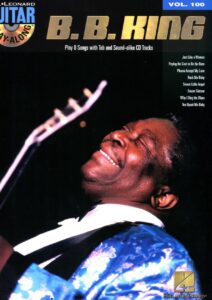 |
Guitar Play Along Vol. 100 – B.B. King |
| B.B. King The Definitive Collection Guitar Signature Licks with TABs By Wolf Marshall |
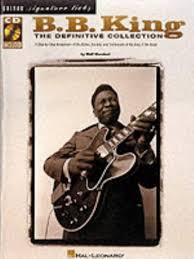 |
B.B. King The Definitive Collection Guitar Signature Licks By Wolf Marshall_compressed |
| Baby Elephant Walk (Hatari OST) Henry Mancini | ||
| Baby Elephant Walk Mancini (Musescore File).mscz | ||
| Babyface, The Songs Of (Kenneth Brian Edmonds) |
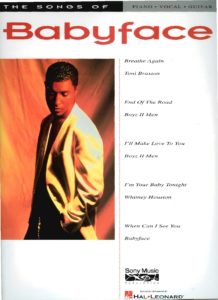 |
Babyface, The Songs Of (Kenneth Brian Edmonds) |
| Bach – Jesu Bleibet Meine Freude Guitar arr.mscz | ||
| Bach – Siciliano In G Minor (Musescore File).mscz | ||
| Bach – Siciliano in G minor Piano solo (Intermediate) |
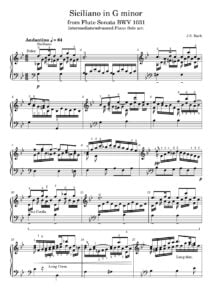 |
|
| Bach J.S. – Aria Mit Variationen Goldberg Variationen Bwv 988 Mit Noten – Sheet Music (Musescore File).mscz | ||
| Bach J.S. – Orchestral Suite No. 1 In C Major Bwv 1066 Passepied (Easy Piano Solo) (Musescore File).mscz | ||
| Bach J.S. For Bass Guitar Mel May Publications |
 |
|
| Bach – Analysis of J.S. Bach’s Wohltemperirtes clavier (48 preludes & fugues) ( Book ) Riemann |
 |
|
| Bach – Arioso (Musescore File).mscz | ||
| Bach – Cello Suite No. 1 In G Major Bwv 1007 Arr. Guitar (Musescore File).mscz | ||
| Bach – Chaconne Bwv 1004 Guitar Arr. (Musescore File).mscz | ||
| Bach – Easy Pieces for Classical Guitar – Notes & Tablature |
 |
Bach – Easy Pieces pieces for guitar |
| Bach – Kurtag – Transcriptions for piano four hands |
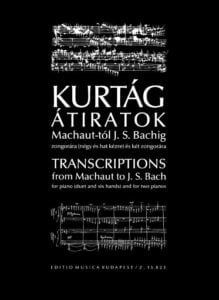 |
|
| Bach – Masterworks of Johann Sebastian Bach ( Book) |
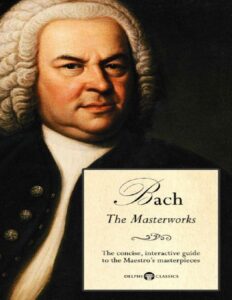 |
|
| Bach – Music in the Castle of Heaven by John Eliot Gardiner (Book) |
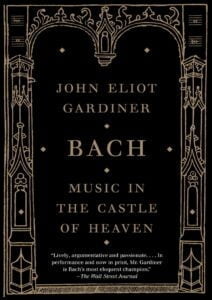 |
|
| Bach – Praeludium Et Fuga In D Bwv 539 Piano Solo (Musescore File).mscz | ||
| Bach – Prelude And Fugue In A Minor (Bwv 543) (Musescore File).mscz | ||
| Bach – Sheep May Safely Graze (Schafe Könen Sicher Beiden) Aria From The Cantata Bwv 208 Easy Piano |
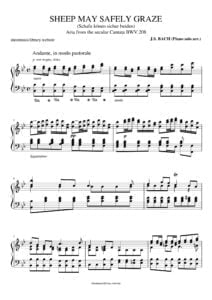 |
|
| Bach – Siciliano (Easy Piano arr. from Flute Sonata BWV 1031 with sheet music) |
 |
|
| Bach – Siciliano (Easy Piano Arr. From Flute Sonata Bwv 1031 With Sheet Music) (Musescore File).mscz | ||
| Bach A Life In Music by Peter Williams (2006) Biography Book |
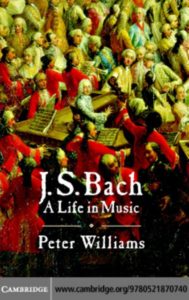 |
|
| Bach Baden Powell Jesus Bleibet Meine Freude Guitar Tablature Tabs |
 |
|
| Bach Bourée (Piano Solo) Jethro Tull (Musescore File).mscz | ||
| Bach Busoni Complete Transcriptions |
 |
Bach Busoni Complete Transcriptions |
| Bach Bwv 22 – Sanctify Us By Thy Goodness Piano Arr. Harriet Cohen (Musescore File).mscz | ||
| Bach Cello Suite No. 1 In G Major For Guitar (Musescore File).mscz | ||
| Bach Chaconne BWV 1004 Abel Carlevaro Guitar Masterclass IV |
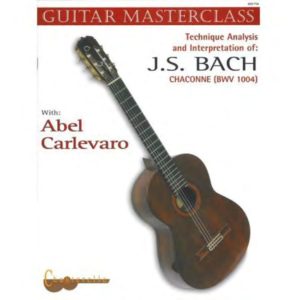 |
|
| Bach Chaconne D minor arr. for guitar |
 |
|
| Bach Forty Chorales Arr. For Piano Solo |
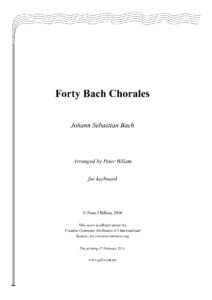 |
|
| Bach Fugue In G Minor Bwv 578 (Piano Solo) (Musescore File).mscz | ||
| Bach Fugue Iv Bwv 849 Wtc I (With Sheet Music Noten) (Musescore File).mscz | ||
| Bach Goedicke – Prelude Fugue BWV 539 transcribed for piano |
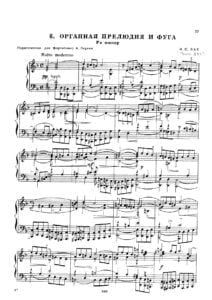 |
|
| Bach Gounod Prelude 1 Ave Maria Jazz Improvisation |
 |
|
| Bach Guitar – Fingerpicking Bach (with Tablature) |
 |
Bach Guitar – Fingerpicking Bach |
| Bach J.S. J.S. – French Suites (I to VI) |
 |
|
| Bach J.S. JS – BWV 208 – Sheep May Safely Graze (arr Friedman) | BACH JS BWV 208 | |
| Bach J.S. Air from Orchestral Suite no. 3 in D Major (trans. D. Weymouth) | Bach J.S. -Air-Weymouth | |
| Bach J.S. Jesu, Joy of Man’s Desiring – Piano Arr Groban, Josh |
 |
|
| Bach J.S. – Jazz Play Along Vol. 120 Pdf + Mp3 Audio Tracks |
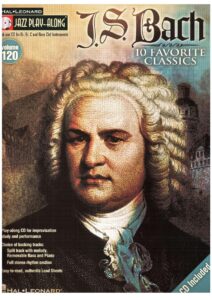 |
Jazz_Play_Along_Vol_120_-_J_S_Bach |
| Bach J.S. – Air on a G String |
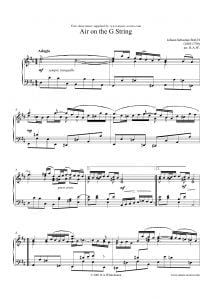 |
|
| Bach J.S. – Busoni Chaconne (piano solo arr.) |
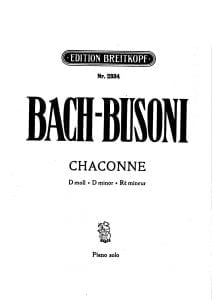 |
|
| Bach J.S. – BWV 565 Piano – Toccata E Fuga In Re Min | Bach – Bwv 565 Piano – Toccata E Fuga In Re Min | |
| Bach J.S. – Cantata BWV 147 – Coral ‘Jesus Bleibet Meine Freude’ (Easy Piano Solo) | Bach Jesu Joy Of Mans Desiring Cantata Bwv.147 Piano Solo Page 1 Of 5 | |
| Bach J.S. – Das Wohltemperierte Klavier HENLE VERLAG |
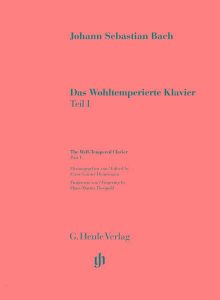 |
|
| Bach J.S. – Easy Pieces for Classical Guitar – Notes & Tablature |
 |
Bach – Easy Pieces pieces for guitar |
| Bach J.S. – English Suites Inglesi (piano) BWV 806-811 |
 |
|
| Bach J.S. – Nun komm, der Heiden Heiland, BWV 659 | Bach, J.S. – Nun komm, der Heiden Heiland, BWV 659 | |
| Bach J.S. – Toccata and Fugue in D minor BWV565 (Piano solo arr. Grainger) |
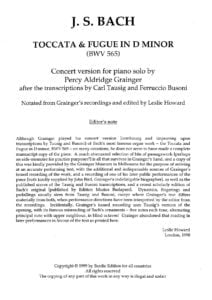 |
|
| Bach J.S. – Two Part Inventions Busoni |
 |
|
| Bach J.S. – Well-Tempered Klavier Analysis Part II Dr. H. Riemann |
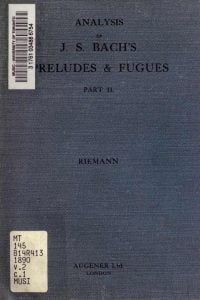 |
|
| Bach J.S. – Wilhelm Kempff 10 Bach Transcriptions for piano |
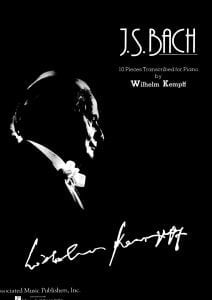 |
Kempff – 10 Bach Transcriptions |
| Bach J.S. (H Bauer) – Corale Dalla Cantata no. 147 “Jesu, Joy of man’s desiring” BWV 7 (Piano Solo) |
 |
|
| Bach J.S. (Marcello) – BWV 974 -Adagio | Bach (Marcelo) – BWV 974 -Adagio | |
| Bach J.S. 12 Small Preludes |
 |
|
| Bach J.S. 15 Three-voice Inventions |
 |
|
| Bach J.S. 15 Two part Inventions Pure Text Ed. Allan Peterson |
 |
|
| Bach J.S. 6 Partitas( I to VI) |
 |
|
| Bach J.S. AIR ON THE G STRING ARR. SILOTI |
 |
|
| Bach J.S. ARIA SUITE EN RE (arr. for 2 PIANOS) | Bach ARIA SUITE EN RE 2 PIANOS | |
| BACH J.S. Art Fugue Die Kunst der Fuge (Ed. Czerny ) BWV 1080 |
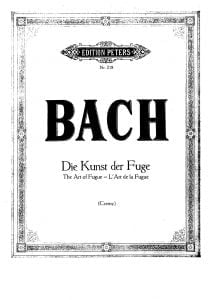 |
|
| Bach J.S. Art Of Fugue Czerny (Ed. Kalmus) BWV 1080 |
 |
|
| Bach J.S. Busoni BWV564 | ||
| Bach J.S. BWV 1055 keyborad concerto n 4 | ||
| Bach J.S. BWV 971 Italian Concerto | ||
| Bach J.S. Cantata 147 arr. for Easy piano solo | Bach-Jesu-Joy-of-Mans-Desiring-Cantata-BWV.147-Piano-Solo | |
| BACH J.S. CANTATA 22 ARR. PIANO SANCTIFY US BY THY GOODNESS arr. by Harried Cohen |
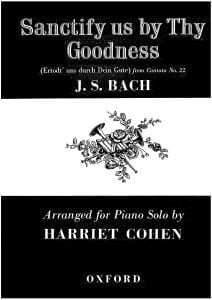 |
Creation and development

Final Fantasy VII was scored by the series’ main composer Nobuo Uematsu
Nobuo Uematsu composed the music of Final Fantasy VII in less than one year, matching the game’s development time, although he had taken two years to create the soundtrack for the previous title, Final Fantasy VI. Final Fantasy VII was the first game in the series to be developed for the PlayStation, and while the media capabilities of the console allowed for pre-recorded Linear PCM (often as Red Book audio tracks on the CD), it was decided to generate the music in real time on the console instead, using samples and note data. This decision has been credited as giving the soundtrack “a very distinctive mood and feel”, forming a strong association for listeners between the game and its soundtrack.
Uematsu had initially planned to use vocal performances for the game to take advantage of the console’s capabilities, but found that the advanced audio quality required in turn made the game have much longer loading times in each area. Uematsu decided that the quality was not worth the effects on gameplay, though after the release and seeing Suikoden II (1998, PlayStation), which had used higher-quality music instead, he reversed his stance for Final Fantasy VIII. There was a plan to use a “famous vocalist” for the ending theme to the game as a “theme song” for the game, but time constraints and thematic concerns, caused the idea to be dropped. Uematsu has stated, however, that the move into the “PlayStation era”, which allowed video game composers to use sounds recorded in the studio rather than from synthesizers, had “definitely been the biggest change” to video game music.
Uematsu’s approach to composing the game’s music was to treat it like a film soundtrack and compose songs that reflected the mood of the scenes rather than trying to make strong melodies to “define the game”, as he felt that approach would come across too strong when placed alongside the game’s new 3D visuals. As an example, he composed the track intended for the scene in the game where Aerith Gainsborough is killed to be “sad but beautiful”, rather than more overtly emotional, creating what he feels is a more understated feeling. Uematsu has additionally said that the soundtrack has a feel of “realism”, which also prevented him from using “exorbitant, crazy music”.
The first piece that Uematsu composed for the game was the opening theme; game director Yoshinori Kitase showed him the opening cinematic to the game and asked him to begin the project there. The track was well received in the company, which gave Uematsu “a sense that it was going to be a really good project”. He later stated in the liner notes for the soundtrack album that the music for Final Fantasy VII was his “greatest harvest” to date.
Final Fantasy VII was the first game in the series to include a track with digitized vocals, “One-Winged Angel”. The track has been called Uematsu’s “most recognizable contribution” to the music of the Final Fantasy series, though the composer did not expect it to gain such popularity. The piece, described as “a fanfare to impending doom”, is said to not “follow any normal genre rules” and has been termed “possibly the most innovative idea in the series’ musical history”.
Uematsu approached the piece, which accompanies the final battle of the game, in a different manner than previous “boss tracks”: as he felt that using his normal approach would cause unfavorable comparisons to his well-received Final Fantasy VI boss tracks, he instead tried to take a different approach. Inspired by The Rite of Spring by Igor Stravinsky to make a more “classical” track, and by rock and roll music from the late 1960s and early 1970s to make an orchestral track with a “destructive impact”, he spent two weeks composing short unconnected musical phrases, and then arranged them together into a song, an approach he has never used before or since.
The lyrics of “One-Winged Angel”, a Latin choral track that plays at the climax of the game, were taken from the medieval poetry that forms the basis of Carl Orff‘s Carmina Burana, specifically “Estuans Interius”, “O Fortuna“, “Veni, Veni, Venias” and “Ave Formosissima”. Uematsu has stated that the intro of “One-Winged Angel” is based on Jimi Hendrix‘s “Purple Haze“, that the piece revolves around the image of Sephiroth, and that despite the chorus and orchestra, he still thinks of it as a “rock piece”. He said in a 2005 interview that “One-Winged Angel” is his favorite tune from the soundtrack, and in 2004 that it was his favorite battle theme from any Final Fantasy game.
Final Fantasy VII Albums
Original Soundtrack
Final Fantasy VII Original Soundtrack is a soundtrack album containing musical tracks from the game, composed by Nobuo Uematsu and produced by Uematsu and Minoru Akao. It was originally released on February 10, 1997 through DigiCube and later reissued directly by Square Enix on May 10, 2004. The soundtrack spans 85 tracks over four discs and has a combined duration of 4:39:53. A limited edition was produced along with the original album, containing illustrated liner notes with several pictures of Uematsu’s workspace and personal effects, various cutscenes and in-game screenshots from the game, and a discography.
The soundtrack covers a wide variety of musical genres, including rock, techno, orchestral, and choral, although the soundtrack as a whole is primarily orchestral. While many of the tracks were intended as background music, reviewers noted the emotional intensity of several tracks, especially “Aerith’s Theme”, which plays during a moment described as “the most shocking moment in video games,” and has been described as the most memorable track from the album. The theme has become popular among fans, and has inspired various arrangements. Other notable tracks include “Main Theme of Final Fantasy VII”. Themes from this track play during several other tunes from the soundtrack, such as “Words Drowned by Fireworks”, to tie the soundtrack together.
The regular edition of the album reached No. 3 on the Japan Oricon charts, while the limited edition reached No. 19. Overall, the album sold 148,000 copies as of January 2010, with the limited edition selling a further 21,000. The album was well received by critics. Allmusic awarded Uematsu’s original soundtrack a five-star rating.
Ben Schweitzer of RPGFan claimed that “for the most part, it’s a diamond”, with his primary complaint being the quality of the MIDI sound. He found the tracks to be “beautiful” and said that “One-Winged Angel” was “possibly the most innovative idea in the series’ musical history”.
Patrick Gann of RPGFan concurred and found all of the soundtrack’s tunes to be “memorable” and the Original Soundtrack to be “very worth the purchase”. Philip of Square Enix Music Online, however, disliked the sound quality of the soundtrack and saw several tracks as “trivial”, though he did note that Uematsu “has a flair for strong, memorable” pieces. In 2006, IGN ranked the album as the best Final Fantasy soundtrack to date and cited the “gripping” character themes and “One-Winged Angel” in particular as contributing factors. They also named “One-Winged Angel” as the best piece of music from the entire Final Fantasy series.
The original CDs for both releases were only published in Japan and include only Japanese track names. The official English track names were later added to digital releases of the soundtrack.
